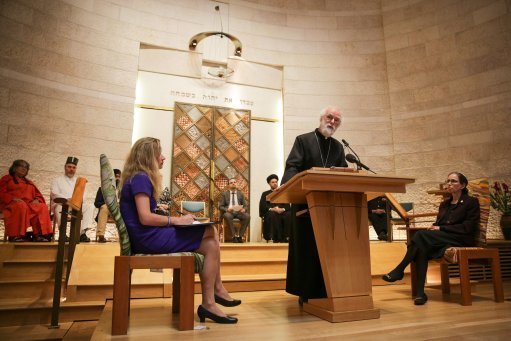Former Archbishop of Canterbury Dr Rowan Williams has spoken out on the topic of religion and online freedom of expression.
Speaking to the peers at the House of Lords communications and digital committee, Lord Williams of Oystermouth said: “Freedom of speech in the sense of frankness, candour – that is speaking without anxiety to one another – is part of a virtuous life…to speak without fear of reprisal, without fear of conversation being cut off by the more powerful party, that is the mark of both the virtuous person, but also the virtuous society.”
Lord Williams also pointed to the new challenges presented by online media and whether they constitute “a form of publishing”, suggesting that it was incumbent on social media companies to take greater responsibility for what they allow to be said on their platforms, and looking to the principle of “net neutrality”.
On the topic of freedom of expression, raised by issues like the banning of President Trump from Twitter, the former Archbishop argued that “limiting the reach of certain kinds of material is I would say something compatible with recognising basic freedoms of expression, we’re not talking about a right to assisted publicity”. He went on to say that religion was threatened by “misinformation about religious belief and customary practice”.
These remarks were made in context of dramatic events in America where President Trump has been accused of inciting the violence in the US Capitol, and where tech giants have moved to ban not only Donald Trump from their platforms but have also refused service to the right wing social media platform Parler.
Speaking on the issue of intellectual pluralism and polarisation Lord Williams said: “If everybody’s a fascist, nobody’s a fascist, we don’t have the language left to identify the real atrocities…a great deal of our oversimplified discourse works on the assumption that if we shout loud enough and hang on long enough the others will disappear.”
He pointed instead to “local democracy”, to contexts where we can learn that “the other person won’t disappear”.
Concluding his answers to the committee Lord Williams argued that online platforms need to be more transparent and accountable calling on them to “agree some criteria which can be scrutinised and appealed to” and challenging their “virtual monopoly” over online communications.



 Loading ...
Loading ...